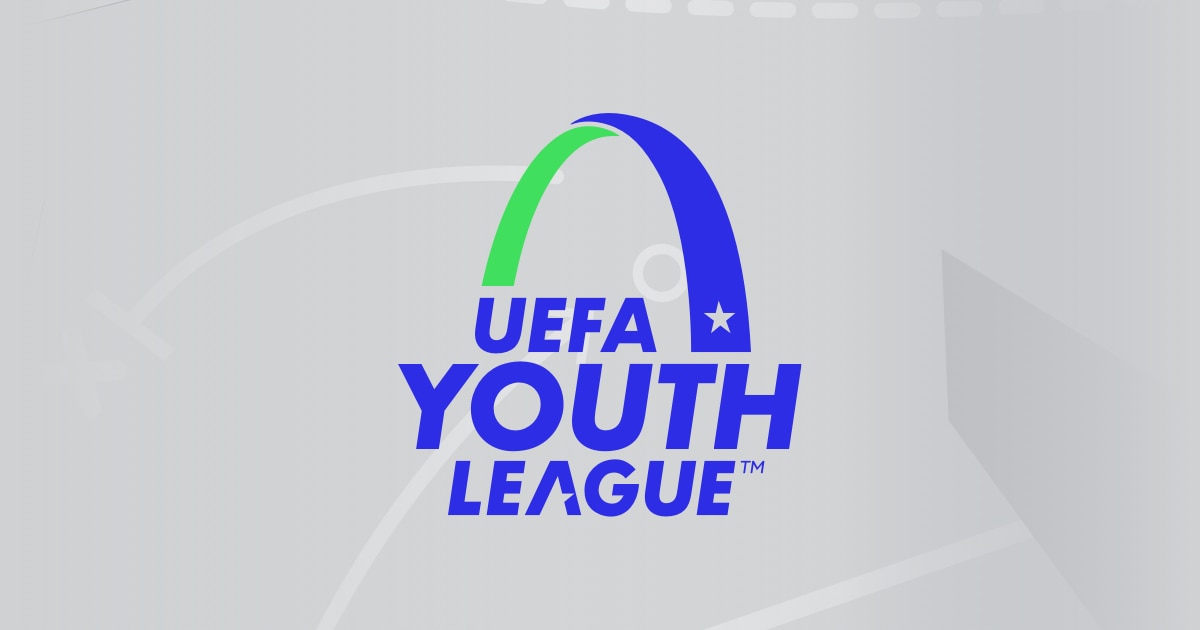League Cup Youth tournaments offer a crucial platform for young footballers, providing invaluable competitive experience and fostering their development. These competitions, structured across various age groups and formats, serve as a breeding ground for talent, attracting scouts and shaping the careers of aspiring professionals. From group stages to knockout rounds, the intensity and strategic challenges presented push players to their limits, accelerating their growth both on and off the field.
The structure of these youth leagues varies across countries, with differing rules and regulations tailored to the age and skill levels of the participants. Beyond the competitive aspect, youth league cups play a vital role in identifying and nurturing young talent, often providing a pathway to professional football for many promising players. Coaching strategies in these competitions are crucial, emphasizing tactical awareness, psychological resilience, and skill development, all within a supportive and encouraging environment for young athletes.
For descriptions on additional topics like league one quiz, please visit the available league one quiz.
League Cup Youth Tournament Structure
Youth league cups serve as crucial stepping stones in the development of young footballers. Their structure varies across countries and leagues, but common elements ensure a competitive yet age-appropriate environment.
Age Group Categories
Youth league cups typically categorize players into age groups, commonly spanning U10, U12, U14, U16, U18, and sometimes even U21. These age brackets allow for fair competition based on physical maturity and skill development.
Competition Formats
Most youth league cups employ a combination of group stages and knockout rounds. Group stages allow teams to play multiple matches, fostering consistent game time and experience. Knockout rounds introduce a higher stakes environment, testing resilience and adaptability under pressure. Some competitions might also include a qualification phase before the main tournament.
Rules and Regulations
Youth league cup regulations prioritize player safety and development. Rules often differ from adult leagues, focusing on fair play, limiting physical contact, and emphasizing technical skills. For instance, substitutions are often more frequent, and stricter rules on tackling and fouls are in place. Game durations might also be shorter to accommodate younger players’ stamina.
Comparative Structure of Youth League Cups
The structure of youth league cups can vary significantly across different countries and even within a single country’s various leagues. Here’s a comparison highlighting some key differences:
| Country | Typical Age Groups | Competition Format | Key Regulations |
|---|---|---|---|
| England | U9-U18 | League & Cup Combination, Regional & National | Emphasis on player development, fair play, and technical skills. |
| Spain | U12-U19 (División de Honor Juvenil) | League-based, with cup competitions at regional and national levels | Focus on tactical awareness and possession-based football. |
| Germany | U15-U19 (Bundesliga Juniors) | League-based, with cup competitions integrated into the league structure. | Emphasis on physicality and tactical discipline, increasingly professionalized at higher age groups. |
| United States | U13-U19 (US Soccer Development Academy – now defunct, replaced by various youth leagues) | League-based, with national championships. | Emphasis on player development and college recruitment. |
Player Development in Youth League Cups
Youth league cups play a vital role in the development of young footballers, providing opportunities for growth both on and off the field.
Identifying and Nurturing Talent
These competitions offer a platform for scouts and coaches to identify talented players. The competitive environment allows players to showcase their abilities, leading to opportunities for advancement in youth academies and professional clubs. The pressure of competition pushes players to improve their skills and decision-making under pressure.
Benefits of Competitive Experience, League cup youth
Participation in youth league cups provides invaluable competitive experience. Players learn to handle pressure, manage setbacks, and work effectively within a team. They develop crucial skills like resilience, adaptability, and teamwork, which are transferable to many aspects of life.
Comparison with Other Youth Programs
While youth league cups offer intense competition, they complement other youth football programs, such as academies and school teams. Academies often focus on technical development and tactical instruction, while cups provide the practical application of these skills in a high-pressure environment. School teams often emphasize participation and sportsmanship, providing a broader social experience.
Implementation of Training Methods
Effective training methods implemented within the context of these competitions often involve match analysis, tactical drills that replicate game scenarios, and specific training focusing on areas needing improvement highlighted during matches. Strength and conditioning programs tailored to the demands of the game are also crucial. For example, a team consistently struggling with set pieces might dedicate training sessions to improving defensive and offensive set-piece play.
Coaching Strategies in Youth League Cups
Effective coaching in youth league cups requires a multifaceted approach that blends tactical awareness with a focus on player development and psychological well-being.
Effective Coaching Strategies
Coaches must prioritize player development over immediate results. This involves employing age-appropriate training methods, fostering a positive team environment, and providing constructive feedback. Tactical strategies should be flexible and adaptable, considering the strengths and weaknesses of both the team and opponents. Emphasis should be placed on developing individual skills while integrating them into cohesive team play. Psychological preparation, such as managing pressure and building confidence, is equally important.
Common Challenges and Solutions
Common challenges include managing parental expectations, dealing with player injuries, and maintaining team morale during setbacks. Solutions involve open communication with parents, prioritizing player health and safety, and fostering a resilient team culture that emphasizes learning from mistakes.
Key Coaching Principles
Key coaching principles include:
- Prioritize player development over winning.
- Create a positive and supportive team environment.
- Provide constructive feedback and encouragement.
- Emphasize fair play and sportsmanship.
- Adapt training methods to individual player needs.
- Develop a flexible tactical approach.
Training Plan for Skill Development
A sample training plan might include:
- Technical skills: Dribbling, passing, shooting, and receiving.
- Tactical awareness: Positioning, movement off the ball, and decision-making.
- Physical conditioning: Speed, agility, strength, and endurance.
- Psychological skills: Confidence, resilience, and teamwork.
Impact of Youth League Cups on Players’ Futures: League Cup Youth
Successful participation in youth league cups can significantly influence a player’s future career prospects and personal development.
Pathway to Professional Football

Strong performances in youth league cups attract the attention of scouts from professional clubs. Winning titles or consistently demonstrating exceptional talent can lead to invitations to trials, academy placements, and ultimately, professional contracts. Exposure to higher levels of competition prepares players for the demands of professional football.
Role of Scouting Networks
Scouting networks actively monitor youth league cups, identifying players with the potential to succeed at higher levels. These scouts assess technical skills, tactical awareness, physical attributes, and mental fortitude. They compile reports and rankings, informing recruitment decisions by professional clubs.
Career Opportunities Beyond Professional Football
Even if a player doesn’t pursue a professional career, participation in youth league cups provides valuable transferable skills and experiences. These skills can benefit players in various fields, including coaching, sports management, sports science, and physical therapy. The discipline and teamwork learned also benefit academic and professional pursuits.
Positive Impact on Personal Development
Beyond football, participation in youth league cups fosters personal growth. Players develop leadership skills, learn to manage time effectively, build resilience, and handle pressure. These life skills are beneficial regardless of future career paths.
The Role of Parents and Support Systems
Parents play a crucial role in supporting their children’s participation in youth league cups, creating a positive and encouraging environment is essential for their development.
Crucial Role of Parents
Parents should act as positive role models, providing encouragement and support without undue pressure. They should ensure their children have the necessary equipment, transportation, and access to training and nutrition. Open communication with coaches is also crucial for fostering a collaborative approach to player development.
Importance of a Positive Environment
A positive environment is characterized by encouragement, constructive feedback, and a focus on learning and development. It allows young players to develop their skills without fear of failure and fosters a love for the game.
Challenges Faced by Parents and Solutions
Parents may face challenges such as managing travel schedules, dealing with setbacks, and balancing their children’s football commitments with other aspects of their lives. Solutions include careful planning, open communication with coaches and other parents, and prioritizing their children’s overall well-being.
Responsibilities of Parents
- Provide transportation to training and matches.
- Ensure appropriate equipment and attire.
- Support their child’s participation without undue pressure.
- Communicate regularly with coaches.
- Promote fair play and sportsmanship.
- Prioritize their child’s overall well-being.
- Maintain a positive and encouraging attitude.
Visual Representation of a Youth League Cup Match
The crisp autumn air bites with a chill as the teams take to the pitch. The vibrant colors of their kits stand out against the green of the field. The atmosphere is electric, a mix of nervous energy and excited anticipation. Parents and supporters cheer from the sidelines, their voices a constant hum in the background. The players, though young, exhibit a focus and intensity that belies their age.
A tense battle ensues, filled with skillful dribbling, precise passing, and occasional moments of breathtaking athleticism. The game ebbs and flows, with both teams creating chances and exhibiting moments of brilliance and frustrating errors. The intensity builds as the final whistle approaches, with the final goal scored in the dying seconds, a dramatic conclusion to a tightly contested match.
The roar of the crowd is deafening, a testament to the passion and dedication of the young players on the field.
Youth league cups are more than just competitions; they are vital developmental hubs for young footballers. They offer a unique blend of competitive experience, skill enhancement, and personal growth, shaping players’ futures both on and off the pitch. The role of parents, coaches, and support systems in fostering a positive environment is paramount to the success and well-being of these young athletes, ultimately contributing to the next generation of football stars.
The legacy of these tournaments extends beyond the final whistle, leaving a lasting impact on the lives of participants.


